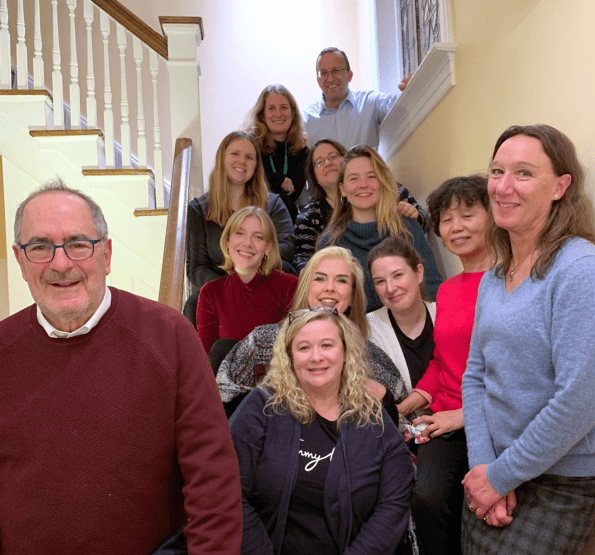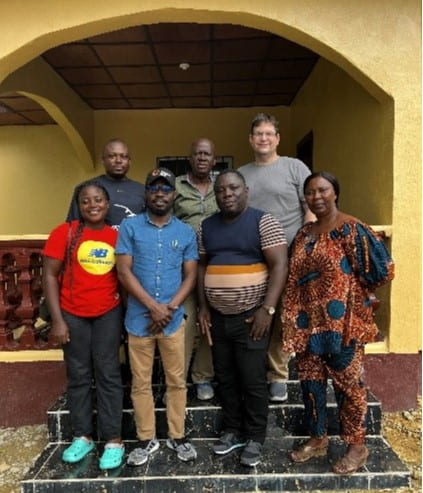Happy 2024 from the DOLF team! From the field to the lab and back again, here is a brief snap shot of our 2023, a year that saw many new advances and developments in our research on lymphatic filariasis (LF) and onchocerciasis (oncho). As an added bonus, we even learned the best bait for catching monkeys! (hint: think jack fruit)
LF/Oncho research
Cote d’Ivoire. 2023 was a busy year in Cote d’Ivoire. In addition to our ongoing LF study looking at the safety and efficacy of moxidectin combination treatment (MoxA/MoxDA) compared with ivermectin combination treatments (IA/IDA), the team launched a new study (MDGH-Mox-3002) in conjunction with our partners the Centre Suisse de Recherches Scientifiques (CSRS) and Medicines Development for Global Health (MDGH). This study seeks to enroll 5,000 participants to further assess the tolerability of moxidectin plus albendazole in areas co-endemic for LF and oncho. We are well on our way with nearly 4,000 participants enrolled by the end of the year.
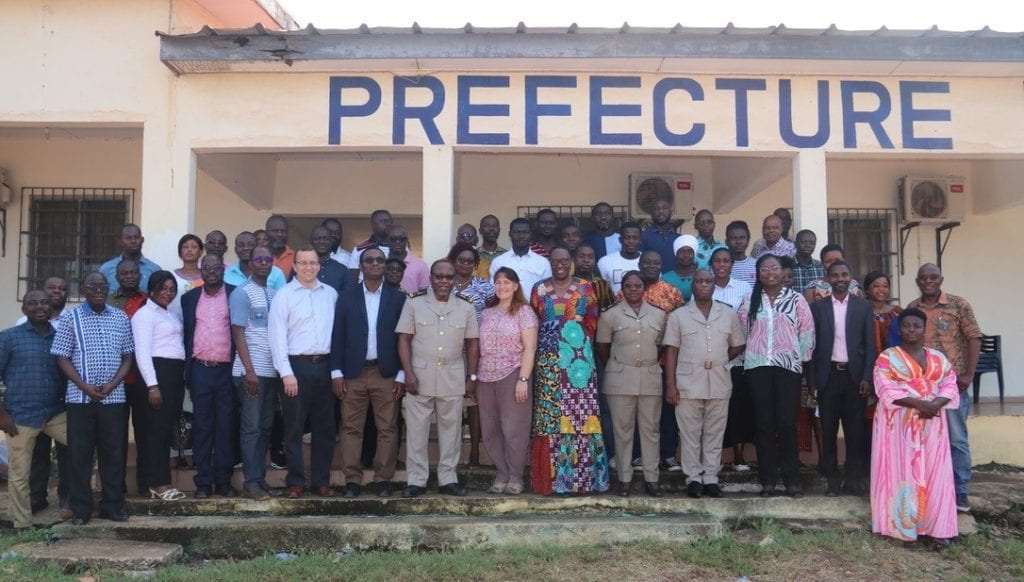
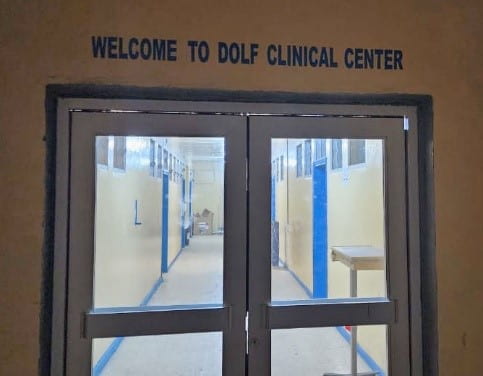
Liberia. In perhaps our most dramatic progress this year, in collaboration with the National Public Health Institute of Liberia, our team laid the groundwork for a new oncho clinical trial in Bong County. Liberia was devastated by civil wars between 1989 and 2002, which left an aging but partially functional infrastructure in Bong Mines Hospital.
To make this site operational for a full clinical trial, we needed to renovate a wing of the hospital, provide water, electricity and internet to the site, build a guesthouse for the study team, and procure ophthalmology equipment for the study. After our study is completed, the hospital will house an ophthalmology clinic for a previously underserved region. This study will test whether new combinations and a different treatment schedule can improve upon results observed in our recent study that was conducted with Dr. Nick Opoku’s team in Ghana. The study will also evaluate safety and efficacy of different regimens to kill or permanently sterilize adult worms. A new, safe, short-course treatment that kills or sterilizes adult worms would be a breakthrough that could accelerate onchocerciasis elimination in Africa. We hope to enroll our first patients in early 2024.
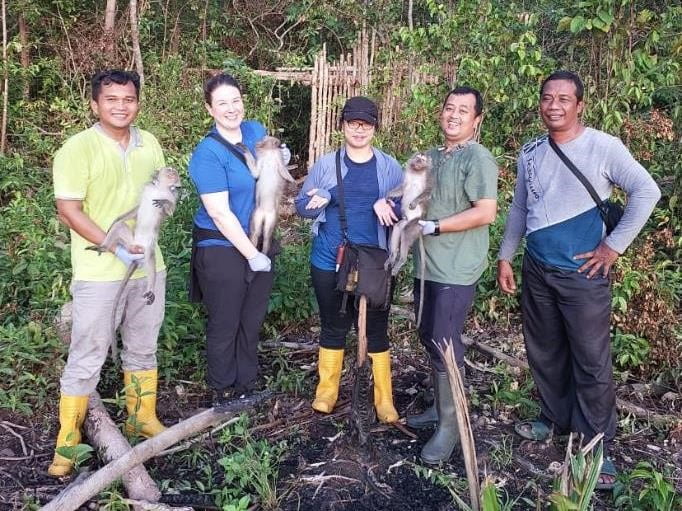
Indonesia. The Belitung region was assumed to be free of LF in humans in 2017 following five rounds of mass drug administration (MDA) and several WHO-recommended surveys of school-aged children. Yet, further surveillance two years later showed that human infections were still present in adults. In response, the Indonesia Ministry of Health requested assistance to determine whether these infections had persisted or reoccurred. The University of Indonesia in Jakarta and the DOLF team are conducting a multi-pronged study to examine: the populations’ acceptance of government run MDAs, determine LF prevalence in selected villages, examine whether animals are significant reservoirs for the infection, and whether the value of xenomonitoring (testing mosquitoes) is helpful for surveillance in this setting. Post Doc Irina Diekmann (who is a veterinarian) visited Belitung in summer of 2023. You can read more about her trip here.
Diagnostic/Biomarker Development
With funding from the Bill and Melinda Gates Foundation, our Biomarker grant seeks to develop improved diagnostic tests for oncho (project I) and for LF (project II) that are needed for monitoring and evaluation of global elimination programs for these diseases. We have identified promising targets – parasite proteins in the blood, confirmed by mass spectrometry for both Wuchereria Bancrofti (LF) and Onchocerca volvulus (oncho) and have received supplemental funding to continue to develop and validate immunoassays for the best biomarker candidates.
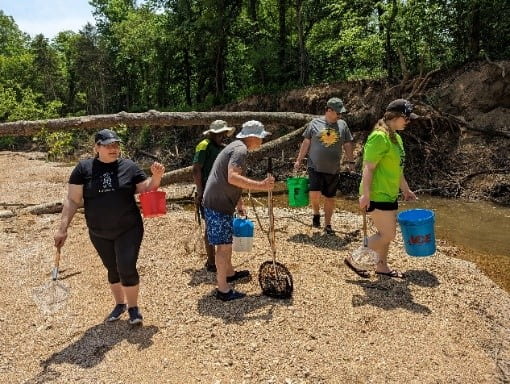
Additional NTD research
Our team continued to work on improving diagnostic methods for paragonimiasis, a foodborne trematode worm infection that is endemic in Missouri and many other regions of the world. The parasite is believed to infect some 23 million people, mostly in East and SE Asia. We continued work to develop a rapid antibody tests together with Drugs and Diagnostics for Tropical Diseases, a company in San Diego. We also identified a parasite protein antigen in extracellular vesicles released by the worms in vitro and in vivo that could be the target for a future antigen diagnostic test.
The photo shows our team on a crayfish hunt to collect parasite material from a float stream in Missouri. Crayfish hunters are rewarded by a visit to a wonderful ice cream stand in a nearby town.
A Lasting Legacy
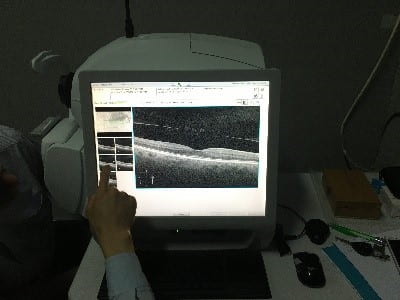
Our team successfully completed a study in Hohoe, Ghana early this year – which found that that the triple drug regimen IDA has significantly improved (partial) macrofilaricidal activity (killing adult worms that lead to oncho) compared to ivermectin plus albendazole that is widely used in mass treatment programs to eliminate oncho in Africa. After the studies end we officially transferred ophthalmology equipment (worth over $150,000!), along with seed funding to train and hire staff to maintain the clinic to the University of Health and Allied Sciences in Ghana. This should help to fill a gap in the availability of ophthalmology services in the region.
Publications and Team Accomplishments
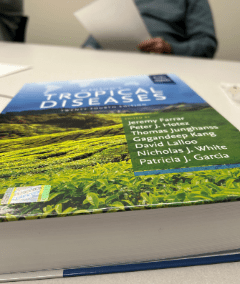
In addition to 12 publications by DOLF team members this year, we are pleased to announce that at long last, the new edition of Manson’s Tropical Diseases textbook has been released, featuring a chapter on Filiarasis authored by DOLF co-PIs Gary Weil, Peter Fischer and their colleague Achim Hoerauf from the University of Bonn. Gary Weil received the prestigious Kyelem Prize awarded by the Coalition for Operational Research on Neglected Tropical Diseases (COR-NTD) at their meeting in Chicago his fall.
The DOLF team welcomed two new members in 2023. Postdoc Irina Diekmann (DVM and PhD) joined us in January and Data Manager, Lexi Dyer (MPH) joined us in August.
